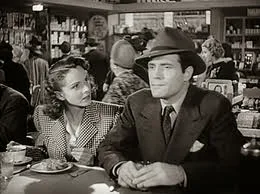Usual suspects (1995)
 In this time and age, many conspiracy theorists are having a field day. They come up with so many mind-bending and mind-boggling explanations to drive home their point of why a particular event happened the way it did. Their story may sound incredulous, but they sure have an appropriate answer for the turn of events.
In this time and age, many conspiracy theorists are having a field day. They come up with so many mind-bending and mind-boggling explanations to drive home their point of why a particular event happened the way it did. Their story may sound incredulous, but they sure have an appropriate answer for the turn of events.
Take the example of the genesis of Covid-19. One camp will insist that it was a Chinese bioweapon that went wrong. To support their assertion, they would show 'proof' of the Chinese Communist Party's secret laboratory in Wuhan and how a diseased bat landed in their market-place.
Then the opposing party will say that the virus is actually US-made. To arrest China's seemingly unstoppable ascent for emerging as the world's largest economy, the US had to resort to such dirty tactics. A third party would then appear to insist that the virus was just a natural mutation, a sort of Nature's fight back to reclaim its territories.
When you turn around and tell them that their tall stories are too unbelievable to be accurate, they would turn around and tell you, "Sometimes the truth is stranger than fiction!"
Then there is the New World, the Illuminati, the Cabal of Bankers with the Rothschilds, the Mossad and the list goes on who really controls all the wars, the economy and even tsunami and climate change.
'The Usual Suspects' has a sort of cult following. It is often quoted as a pop culture reference in many American shows including 'Saturday Night Live' and 'Family Guy'. The convoluted storyline told by a convict of an elusive mobster and twist at the end of the movie is a classic for many movie buffs. It also boasts of many memorable lines reminiscent of any good noir movie of the 50s.
As the signature of the film says, 'the greatest stunt that devil pulled was that he never existed' is precisely how the hidden forces of the controlling powers work. Work is done by proxies. The right-hand whacks, whilst the left applies the soothing liniment. The arms that break also embrace. That is the art of deception.
 In this time and age, many conspiracy theorists are having a field day. They come up with so many mind-bending and mind-boggling explanations to drive home their point of why a particular event happened the way it did. Their story may sound incredulous, but they sure have an appropriate answer for the turn of events.
In this time and age, many conspiracy theorists are having a field day. They come up with so many mind-bending and mind-boggling explanations to drive home their point of why a particular event happened the way it did. Their story may sound incredulous, but they sure have an appropriate answer for the turn of events. Take the example of the genesis of Covid-19. One camp will insist that it was a Chinese bioweapon that went wrong. To support their assertion, they would show 'proof' of the Chinese Communist Party's secret laboratory in Wuhan and how a diseased bat landed in their market-place.
Then the opposing party will say that the virus is actually US-made. To arrest China's seemingly unstoppable ascent for emerging as the world's largest economy, the US had to resort to such dirty tactics. A third party would then appear to insist that the virus was just a natural mutation, a sort of Nature's fight back to reclaim its territories.
When you turn around and tell them that their tall stories are too unbelievable to be accurate, they would turn around and tell you, "Sometimes the truth is stranger than fiction!"
Then there is the New World, the Illuminati, the Cabal of Bankers with the Rothschilds, the Mossad and the list goes on who really controls all the wars, the economy and even tsunami and climate change.
'The Usual Suspects' has a sort of cult following. It is often quoted as a pop culture reference in many American shows including 'Saturday Night Live' and 'Family Guy'. The convoluted storyline told by a convict of an elusive mobster and twist at the end of the movie is a classic for many movie buffs. It also boasts of many memorable lines reminiscent of any good noir movie of the 50s.
As the signature of the film says, 'the greatest stunt that devil pulled was that he never existed' is precisely how the hidden forces of the controlling powers work. Work is done by proxies. The right-hand whacks, whilst the left applies the soothing liniment. The arms that break also embrace. That is the art of deception.
This work is licensed under a Creative Commons Attribution 4.0 International License.

































